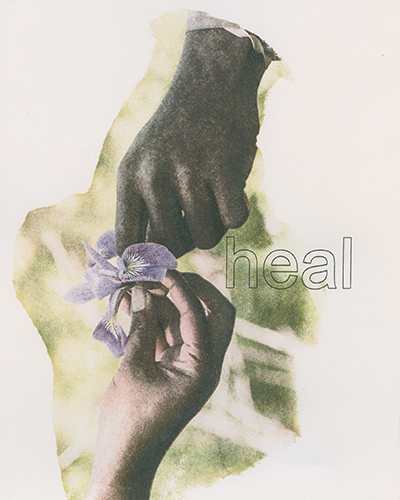
Illustration by: Jen Everett
BY: ARCHBISHOP WILTON D. GREGORY, SLD
The impact of the coronavirus has furnished even more irrefutable proof of what was already widely known or at least commonly suspected — that there exist vast inequities within our society and social structures when it comes to health, finances and other shared opportunities. The medical statistics associated with this pandemic describe the disproportionate consequential effect of those inequities upon people of color, the poor and the elderly. While I suppose that some people will continue to endeavor to explain away or refute the hard evidence, few can deny that the coronavirus has disproportionately sickened and killed more people in those three categories than among the general population, not only in our nation, but worldwide.
Our church therefore has an increased obligation not only to recognize the validity of the statistical data, but even more importantly, to respond with religious and professional intensity to the current crisis. We are a faith community summoned to comfort and, to the best of our ability, to heal those whose lives have been so drastically crushed by this virus. As a religious family, we must provide both spiritual and, where possible, tangible assistance to those who are victims of COVID-19.
We have countless examples of how courageous servant ministers of the church have responded to such events in the past. The stories of saints who cared for those suffering from then-unidentified diseases, even at risk to their own health, is a badge of great honor for Catholicism. The women religious in our own nation, who repeatedly opened hospitals in disadvantaged areas of society, have welcomed patients suffering from illnesses that decimated communities. This brought them both recognition and gratitude, often from those who were not themselves Catholics. We must continue to do the same, always aided by the medical and scientific knowledge that we now have available. The church's care for the sick has long been a legacy of great worth. Even in places where there were few Catholics, the healing ministry of the church assured our neighbors that our mission was not simply to serve those of our own faith, but all those who needed the compassionate Christ to serve and heal them. Such generosity was evangelization in its highest form because it responded to the great commission of Christ to "go into all the world and proclaim the good news." (Mark 16:15) The good news that was to be proclaimed was not only a word of healing, but also one of hope. Many people in the past came to meet Christ the Healer in the actions of those who cared for them in the name of the Lord. They encountered the Christ of the New Testament who consistently touched and comforted the sick.
According to the church's tradition of healing, we also must recognize the forces with which we are dealing. We need to acknowledge COVID-19 as a new reality that requires both medical and scientific expertise, but we also need to exhibit the courage and determination that has been witnessed by countless individuals and organizations who have responded with intrepid valor. Our ministry of healing must also include responding to the circumstances that have allowed this disease to have a disproportionate impact on the lives of certain segments of human society. We thus need to bring the solace of medicine and treatments, but also aggressively urge our elected and public officials to address the reasons that cause this virus to be so dangerously effective within particular segments of society. The church is obliged to align herself with those who demand the reform of oppressive and negligent social structures that cause some people to be more vulnerable than others to this pandemic.
To merely comfort and heal those who have been infected by COVID-19 without examining and acknowledging the reasons why some people in society are so much more vulnerable is to heal only the disease without alleviating the conditions that make it so successful in sickening and killing some populations more than others.
This has long been the modus operandi of the Catholic Health Association that successfully brings the medical and scientific skills of its affiliates into dialogue with its commitment to social justice transformations. Both activities are necessary and in keeping with the model of the church's long history of healing. This indeed is the path that we must now follow, in addition to the COVID-19 medical response. We must follow the path to those who are suffering and to challenge the social realities that intensify the suffering of particular segments of the population. This is the Catholic way of healing.
ARCHBISHOP WILTON D. GREGORY is the Archbishop of Washington.